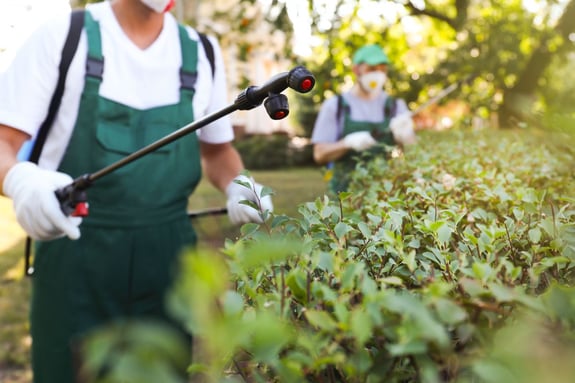There is a lot to consider when choosing a pest control company or even keeping a pest control company. The vendor needs to accommodate the needs and ensure the health and safety of all parties, whether they are elderly, children, individuals with certain respiratory or immune disorders, allergies, etc. If you allow pets in your community, even that must be taken into consideration. It’s important for you to ensure that you have a licensed and properly insured company to handle your pest control.
For structural pest control, Florida law requires that each pest control business location must:
- Be licensed by the FDACS (Florida Department of Agriculture and Consumer Services).
- Carry the required insurance coverage ($250,000 per person and $500,000 per occurrence for bodily injury and $250,000 per occurrence and $500,000 in the aggregate for property damage, or a combined single limit coverage of $500,000 in the aggregate).
- Employ a full-time Florida-certified operator in charge of the pest control operations of the business location. This operator must be certified in the categories in which the business operates: 1) General household pest and rodent control, 2) Termite and other wood-destroying organism’s control, and 3) Lawn and ornamental pest control, and/or fumigation.
- Check for licensure on any company or individual by visiting the Public Database Searches website, https://aessearch.fdacs.gov/
Check to see if your pest control company is using alternative biopesticides for pest control. These are called “green” pesticides. These are non-toxic, environmentally safe solutions to pest control. Biopesticides are certain types of pesticides derived from such natural materials as animals, plants, bacteria, and certain minerals. For example, canola oil and baking soda have pesticide applications and are considered biopesticides. There are well over 299 registered biopesticide active ingredients and 1400 active biopesticide product registrations. Biopesticides are defined by the EPA as:
- Naturally occurring substances that control pests (biochemical pesticides)
- Microorganisms that control pests (microbial pesticides)
- Pesticide substances produced by plants containing added genetic material (plant-incorporated protectants) or PIPs.
- The EPA website, https://www.epa.gov/ingredients-used-pesticide-products/what-are-biopesticides, provides extensive information on “green” pesticides. You can also share this website with your residents if they are responsible for providing pest control to their own units.
